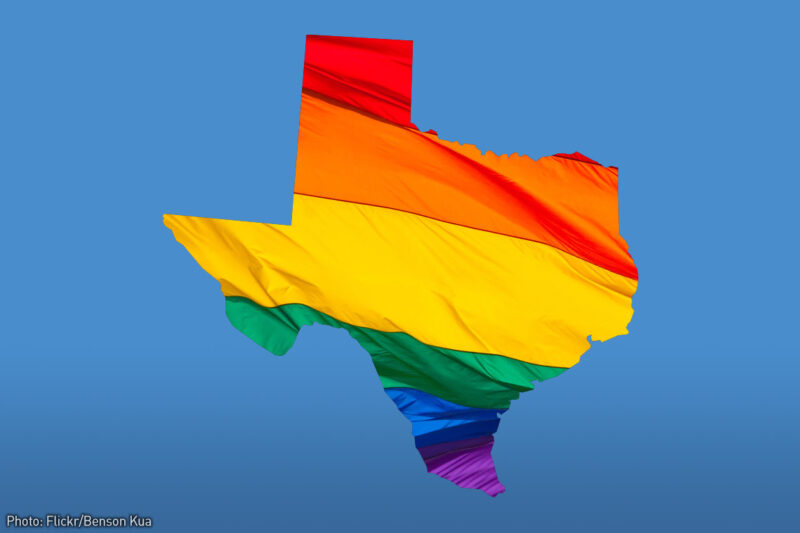
Everything is bigger in Texas, including apparently the legislature's desire to use religion and any other means to discriminate against gay and transgender Texans.
In the last legislative session, the legislature threw virtually everything it had at the wall. One bill would have prohibited state funding of marriage licenses for same-sex couples. Another would have removed the hard-won civil rights protections in the state Religious Freedom Restoration Act. A third bill would have allowed organizations receiving taxpayer funds to undermine children's best interests by denying adoption or foster care placements and health care services, including reproductive care and counseling, under the guise of religious freedom. In other words, some state politicians really wanted to remind gay and transgender Texans that many of their elected representatives appeared to be working actively against their interests.
Fortunately, bigger still was the coalition that came together to defeat all of these bills. Yes, you heard it right: Every single one of nearly two dozen discriminatory pieces of legislation failed to pass. What was the magic formula? Credit is due to an โ including faith leaders, business owners, and thousands of ordinary citizens โ who made calls, visits, and otherwise reached out to the legislature to tell them in no uncertain terms that these mean-spirited bills do not reflect Texan or American values.
Our victory in Texas is the latest example of how the country is rejecting the use of religion to discriminate. We learned from and built upon our , when sports teams, politicians, religious leaders, and Americans across the country . Just a few months ago, Gov. Mike Pence of Indiana paid a heavy price, both in dollars (estimated to be in the "" according to one in-state economist) and in poll numbers (a in his approval rating in just two months), for signing a bill into law that he steadfastly denied was for discriminatory reasons, despite .
Even though the so-called "fixes" to the Indiana and Arkansas RFRAs were inadequate (see our statements on Indiana and Arkansas), the vigorous public outcry and eventual fallout led legislators in Georgia, Maine, Montana, and Nevada to wisely say no thanks to discrimination.
While we pause to celebrate our progress, we are still keeping a close eye on state legislatures that have yet to heed the warning. Yes, we are looking at you, Michigan and North Carolina. And we are preparing for 2016, when marriage equality may be a nationwide reality.
Will legislatures do the right thing? We certainly hope so, but of course don't know for certain. However, what we do know is that people across the country stand ready to fight back.

